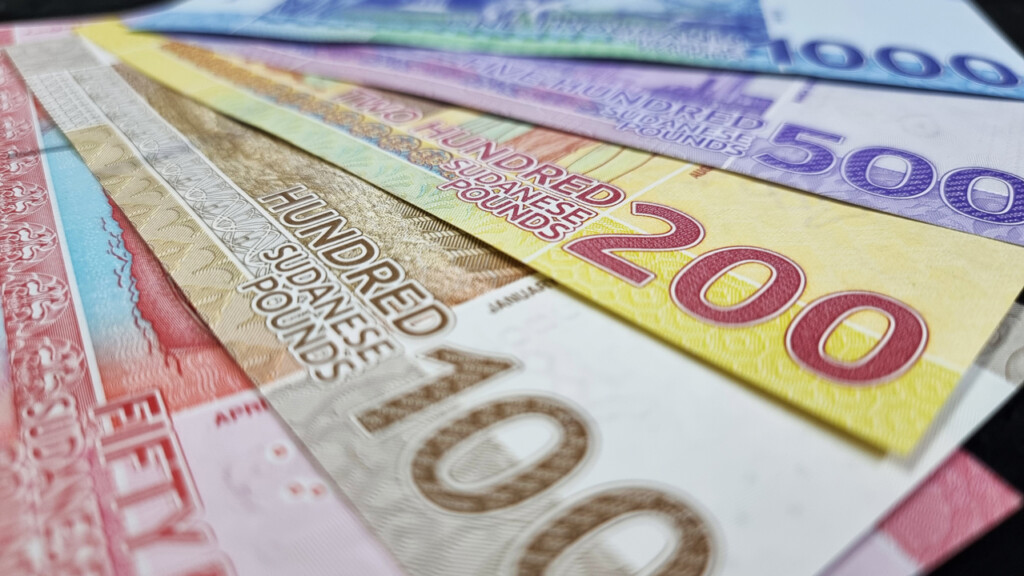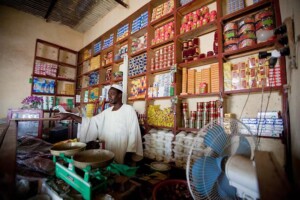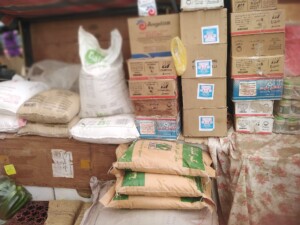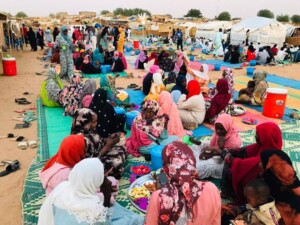Expat Eid cash fails to boost ailing Sudanese Pound

Sudanese Pounds (File photo: Andrew Bergman / RD)
The influx of substantial cash transfers from abroad, especially from expatriates to coincide with the Eid El Fitr, has done little to stem the downward trend of the Sudanese Pound (SDG) against international currencies.
In the days approaching Eid El Fitr, bank transfers to Sudan showed a significant increase especially from expatriates, both in Arab countries and the global diaspora. Remittances from outside Sudan are increasing, as the ongoing conflict has forced many people in Sudan to rely on foreign transfers from relatives and friends.
However, the remittances of foreign currency have had little effect on the downward spiral of the value of the Pound, fuelled by insecurity and the conflict.
A source within a major Sudanese bank, who asked not to be named, told Radio Dabanga that before the war in general, the volume of transfers was in estimated quantities, but now all transfers, especially those that were received by organisations, have become scarce, resulting in the scarcity of hard currency itself in banks.
Banking expert Omar Sayed downplays the transfer movement, despite its magnitude, by saying that the state does not benefit from expatriate remittances, because they take place outside the banking system and even if it’s done through your bank. The rest arrives through private ATMs, one owned by former director Salah Abdallah (Salah Gosh), former director of the infamous National Intelligence and Security Service (NISS), and Fawry app of Faisal Bank, another affiliated with Omdurman National Bank and currency traders from the National Congress Party group as well.
Sayed told Radio Dabanga that the Sudanese pound has been shaken violently since the outbreak of the war in April last year, with an uncharacteristic rapid loss in value by more than 100 per cent. He says the exchange rate for the Dollar in the parallel market rose from SDG 600 before the war to more than SDG1,200. He expects the price of a greenback to continue to rise at the same pace, indicating that current transfers will not revive the market.
Exchange rate control
Sayed says that that the mechanism that controls the exchange rate of the Sudanese Pound against international currencies in the parallel market is simply the law of supply and demand.
In response to a question about the locations of hard currency markets, he says that the basic markets are located in the Gulf countries, the UAE, and Saudi Arabia, rather than inside Sudan, minimising the impact of war and instability on currency markets. However, he sees it obvious to ask where the export revenues are, specifically gold exports in the previous period. He said that export revenues are supposed to create stability and balance between supply and demand by increasing supply, increasing foreign currency, and wondering where export revenues go and where they are spent. Especially since the state has stopped subsidising basic goods.
Sayed points out, the significant rise in the exchange rate of the dollar on the parallel market came as a result of increased demand in order to meet the import of basic commodities such as oil, wheat, medicines, sugar, as well as many consumer goods after the destruction of the industry, which remained concentrated in the three cities of the capital and El Gezira.
Sayed says that for many years the state was the largest buyer of the US Dollar, and after the war the private sector joined it, to import basic commodities, especially since what he described as a “de facto government” continued to bear the consumer the burden of the rise in the price of the dollar, with the continuous change of fuel prices, and the increasing demand with a clear weakness in supply led to the continued rise in the exchange rate.
The impact of expatriate remittances remains very limited in affecting supply, despite the increase in these remittances after the war through private ATMs or through bank applications (Bankak, Fawry, etc .) to support the millions affected by the war in the capital and provincial cities and the loss of their property in the face of increasing demand.











 and then
and then